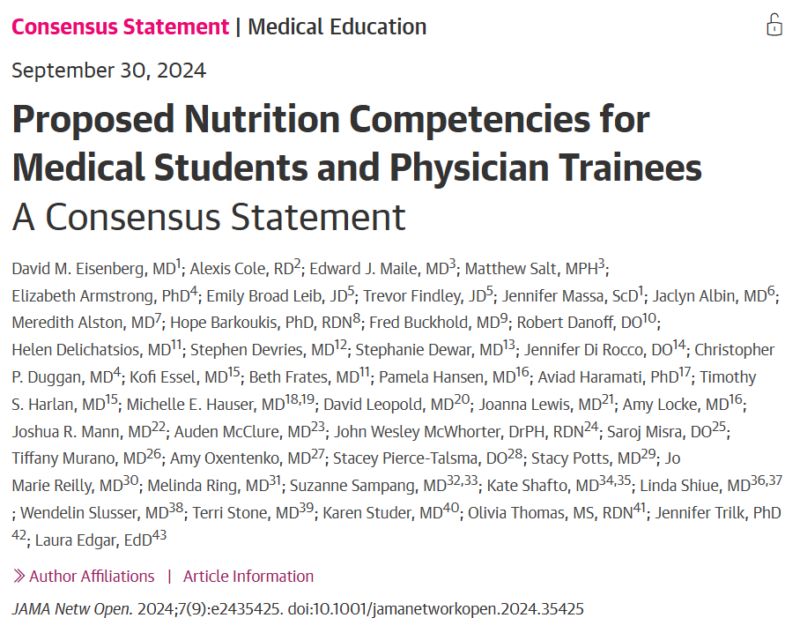Sami (Papacek) Mansfield, Founder of Cancer Wellness for Life and also a Chair of Cancer Member Interest Group, shared an article by David M. Eisenberg on LinkedIn:
“Recently, the American College of Lifestyle Medicine spotlighted a pivotal article from JAMA, Journal of the American Medical Association, titled “Proposed Nutrition Competencies for Medical Students and Physician Trainees: A Consensus Statement.”
As I dove in enthusiastically, one timeless reminder stood out: “Don’t lose the forest for the trees.” While the research makes critical strides in medical education, it highlights a broader, pressing question:
How do we address the root causes of our food and nutrition challenges at scale?
Our grocery aisles are dominated by processed foods, over 70% of the average grocery store—convenient, yes, but often detrimental to long-term health. This isn’t just about personal choices; it’s a systemic challenge shaped by how our food is produced, marketed, and accessed.
Recent research underscores the urgent need for change—not just through food policy reform but also by empowering consumers with education to make informed, healthier decisions.
What did the study share?
Addressing Nutrition at its Core. The delphi review identified 36 nutrition competencies to enhance healthcare professionals’ ability to guide patients toward better dietary habits.
These competencies focus on:
– Foundational nutrition knowledge
– Effective communication about dietary patterns
– Strategies for managing chronic conditions like obesity and diabetes, which drive 90% of U.S. healthcare spending
While these advances in medical education are essential, the solution to our food crisis requires more than just physician training—it demands bold action at every level. We also MUST ask – who is funding our nutrition education? Too many processed food companies have their brand all over national nutrition organizations.
Looking Upstream: Reforming Food Systems & Empowering Consumers
Over 70% of the U.S. food supply is processed, stripped of nutrients, and packed with additives.
Tackling this means:
– Advocating for policies that prioritize fresh, whole foods
– Supporting local agriculture
– Reducing costs to make healthier options accessible for all
But change doesn’t stop with policy. Consumer education is just as vital—clearer food labeling, nutrition literacy programs, and public awareness campaigns can help individuals take control of their health.
This isn’t just about health; it’s about creating a legacy of stronger, more sustainable food systems for future generations.
What steps should we take to fix our broken food system?
Let’s talk. This is much bigger than education updates.”
Proposed Nutrition Competencies for Medical Students and Physician TraineesA Consensus Statement.
Authors: David M. Eisenberg, et al.

Sami (Papacek) Mansfield is the founder of Cancer Wellness for Life. She’s been a certified cancer exercise specialist since 2003 and has dedicated her career to implementing evidence-based lifestyle education, resources and tools into cancer care for both the patients and the providers. She is also a Chair of Cancer Member Interest Group, at the American College of Lifestyle Medicine and Breast Cancer Taskforce Co-Chair at Colorado Cancer Coalition.


